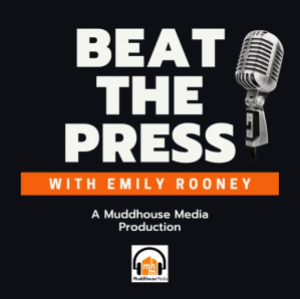A video clip of Liz Walker’s first newscast on WBZ-TV. Bob Lobel is at left.
For anyone under 40, or maybe 50, the idea that local television journalists used to be among our most prominent celebrities may sound unimaginable. Yes, today’s TV journalists are well known, but it’s a far cry from several decades ago.
This coming Sunday’s Boston Globe Magazine takes us back to the 1980s, when WBZ-TV (Channel 4) had a five-member “dream team”: co-anchors Liz Walker and Jack Williams, weather forecaster Bruce Schwoegler, sports reporter Bob Lobel and entertainment reporter Joyce Kulhawik. Walker, Williams, Lobel, Kulhawik and Barbara Schwoegler, Bruce’s widow, take part in a wide-ranging conversation about what it meant to be local TV news stars some 40 years ago, and why that era ended. (Corporate greed, mostly.) Several of their contemporaries and successors are heard from, too.
Walker, who later became an ordained minister, was the first Black woman to anchor a local newscast in Boston, and — as she recalls — making the transition from her previous post in Little Rock, Arkansas, wasn’t easy:
Really, I had no idea. Boston is a tough city anyway, but in 1980 it was a tough city layered with all the racial implications. People were angry, people were traumatized, because they were still reeling from busing. We couldn’t go to Charlestown, they didn’t send us to Southie, because it was too explosive. You go to Roxbury, and they were just pissed at the media in general. There was no safe space.
The feature is tied in with WBZ’s 75th anniversary. As interesting as it is, I wish the Globe had acknowledged that WBZ was involved in a fierce rivalry during the 1980s with WCVB-TV (Channel 5), which had a dream team of its own: anchors Natalie Jacobson and Chet Curtis, who were married at the time, along with weather forecaster Dick Albert, sports reporter Mike Lynch and entertainment reporter Dixie Whatley. My friend Emily Rooney was assistant news director and, later, news director during those years.
The third network affiliate, Channel 7, which has had various call letters (it’s currently WHDH but is no longer a network affiliate), never established a similar identity, although it did unveil a high-powered anchor team of its own, Robin Young and Tom Ellis, in the 1980s.
Leave a comment | Read comments
 The Boston Globe is
The Boston Globe is 




